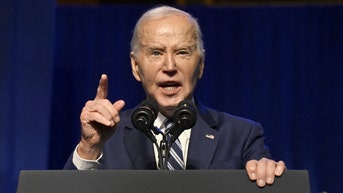Inspector general investigating migrant spending, PPP loan fraud by city workers
/cdn.vox-cdn.com/uploads/chorus_asset/file/23356721/WITZBURG_mug.jpg)
Inspector General Deborah Witzburg said Thursday she is investigating “a lot” of allegations of payroll protection fraud by city employees and has launched a companion probe into $163 million in city spending on the migrant crisis.
Whenever there is a state of emergency and a haste to deliver financial aid, there is an inevitable shortage of oversight that invites abuse, Witzburg said.
That’s what happened during the pandemic, when the stay-at-home shutdown ground the economy to a halt, setting the stage for forgivable Payroll Protection Program loans that kept businesses afloat.
Rampant fraud has been documented, some of it by government employees.
Earlier this month, five Cook County employees were accused of defrauding the PPP program of more than $240,000 by falsely claiming they owned companies that struggled during the pandemic. They joined 20 other county employees over the last year — three of them high-ranking — similarly accused by the county’s interim watchdog.
On Thursday, Witzburg said she is pursuing “both administrative and criminal” investigations of PPP loan fraud among city employees.
“Either the business is fake, and the employee is getting a fraudulent loan, or the business is real, but the employee has failed to disclose the existence of the business or their income from it to the city, which most city employees are obligated to do,” Witzburg told the Sun-Times.
“We are pursuing cases in both of those categories. … We’re looking at a lot of cases from a lot of angles. … This is a large-scale undertaking. It’s a long-term one. … We are getting complaints about specific allegations of fraud by city employees. … We are also … matching lists of city employees against lists of loan recipients and looking at [evidence] of fraud.”
The burgeoning migrant crisis that has seen 11,500 asylum seekers arrive in Chicago since Aug. 31, 2022 has City Council members demanding a strict accounting of city spending.
Witzburg is answering the call.
“Nothing is more damaging to our ability to get help to people who genuinely need it than abuse of that help by people who don’t. … There need to be appropriate controls and protections around where public money is going — even in an emergency,” she said.
“The analogy to PPP loans is a good one. Those loans went out the door without a lot of controls in place because it was an emergency. However, the cost of that has been very, very high. Administration of emergency spending needs to be carefully calibrated. It can’t be held up in bureaucratic red-tape because then, people aren’t gonna get the help that they need. Nor can it be totally unfettered by any internal controls because then, it gets abused.”
Ald. Ray Lopez (15th) was “ecstatic” about Witzburg’s investigation.
He noted that “everything was done in secret” for months, forcing new Mayor Brandon Johnson to “peel back the layers of this onion that Lori Lightfoot left them.”
Ald. Ray Lopez (15th) speaks during a City Council meeting in May.
Pat Nabong/Sun-Times file
“Millions are being spent — $20 million a month. What is the return on our investment in terms of addressing the needs of the individuals? Or this going just to pad the coffers of all the not-for-profits and organizations friendly to the previous administration?” Lopez said.
Lopez noted that $47 million of the $51 million in emergency spending authorized by the City Council on May 31 went to staffing — not to meeting the “direct needs” of migrants.
“Knowing that this crisis is not going to resolve itself at any point soon, we need to put safeguards in place, hopefully with [Witzburg’s] suggestions, as to how to prevent fraud and abuse moving forward,” he said.
During a wide-ranging interview with the Sun-Times, Witzburg argued that the $126.5 million in spending on just six months of police overtime underscores the urgent need for a “pro-active and nimble” staffing strategy that puts Chicago Police officers where crime is highest and they are needed the most.
“Out of control overtime is not a staffing strategy,” she said.
She also accused CPD of going through the motions of complying with the federal consent — by reporting the percentage of the consent decree’s 799 paragraphs where there is “some level” of compliance.
That only means they’ve “written a policy that says that they intend to comply” with the mandate. It has “absolutely no impact on real life on the street — either for Chicagoans or members of the department,” Witzburg said.
“The metric that matters is the number of things that have changed in a real operational way. The number of things that are different on Chicago street corners today than they would have been at the beginning of 2019. And that number is in the single digit percentages,” Witzburg said.
https://chicago.suntimes.com/2023/7/27/23810263/inspector-general-investigating-migrant-spending-ppp-loan-fraud-city-employees-witzburg-lopez Inspector general investigating migrant spending, PPP loan fraud by city workers



